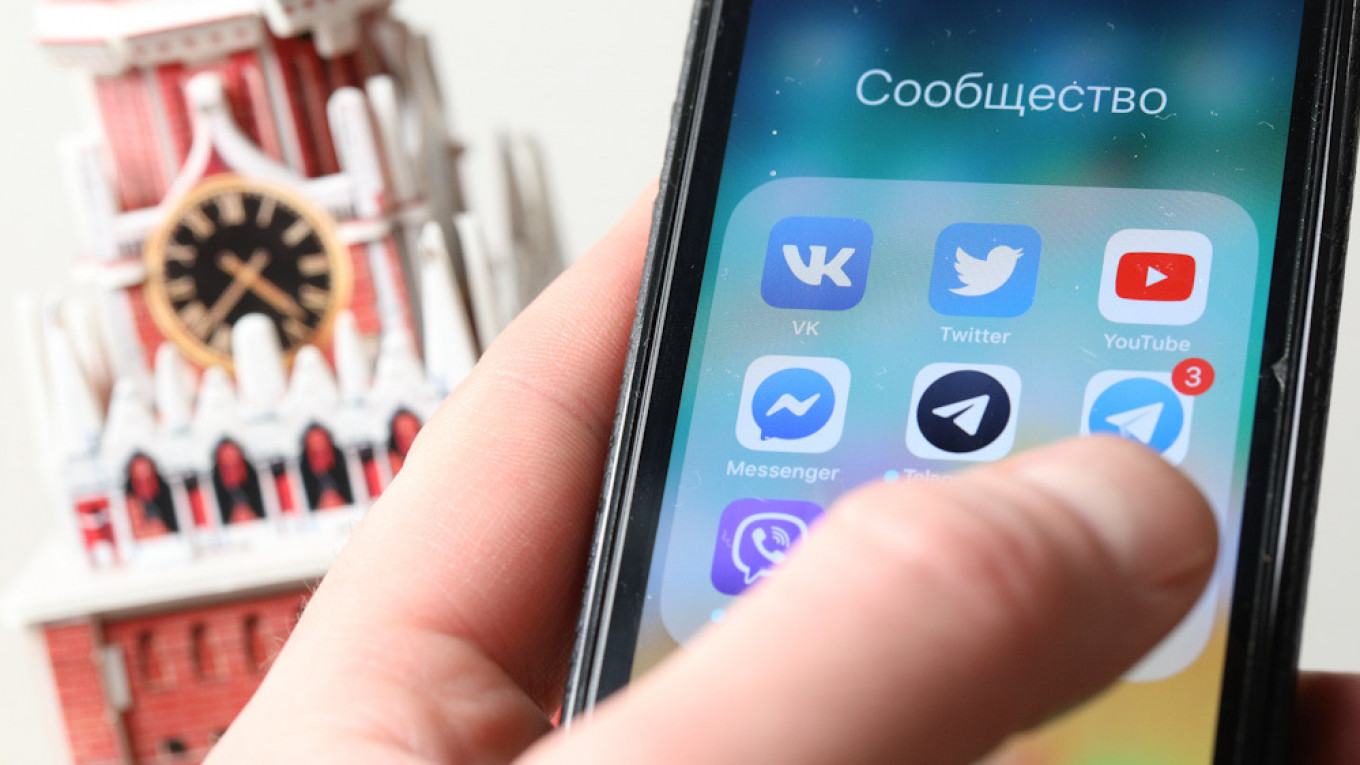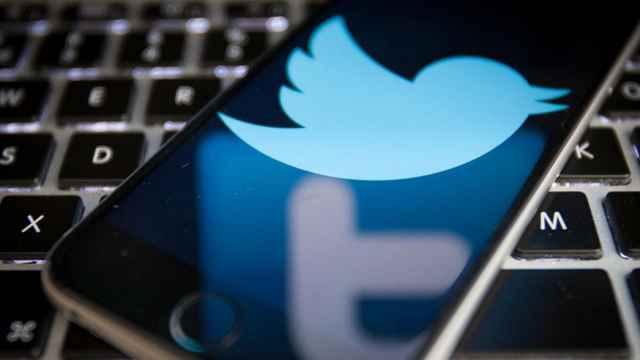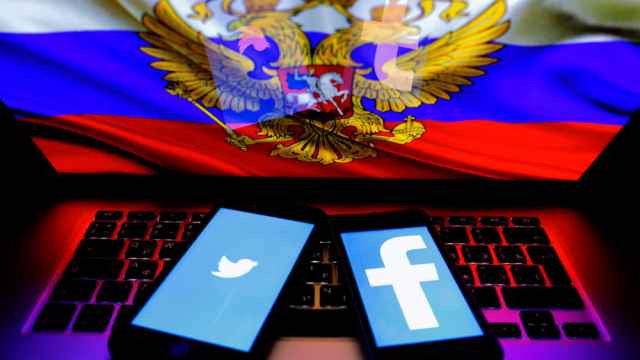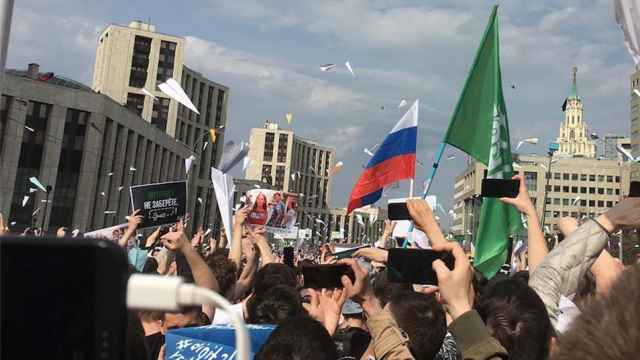Russian internet activists fear the state’s slowdown of Twitter traffic could be the thin end of the wedge in a push toward Chinese-style censorship.
While the U.S.-based microblogging service never made it big in Russia — used by only 3% of the population and a minnow compared with YouTube and Instagram — its targeting is being seen as the herald of further restrictions on foreign social networks operating in the country.
State media watchdog Roskomnadzor has already said the reduction of access after Twitter failed to remove content deemed illegal could be followed by a ban in April, actions experts see as signs the official mood on internet access has changed.
“Twitter is only the beginning,” said Sarkis Darbinyan, a lawyer and digital rights activist.
“We’re likely to see a lot more restrictions on social media in the near future.”
When Vladimir Putin took office as Russia’s president at the turn of the millennium, Russia’s internet age was only just starting.
Since then, his presidency has played out against the background of a country taking to the RuNet — a common term for the Russian-language internet — with the zeal of a convert. As late as 2009 only 29% of Russians used the internet, a decade later the figure had risen to over 80%.
The web’s relative novelty may have kept it safe from government controls. Even as the state clamped down on political opposition and media freedoms, Russia’s internet remained relatively free.
In comparison with the sweeping, technically demanding firewall with which China sealed off its internet users, Russia’s approach was scattershot. As the largest homegrown internet giants were co-opted, with local Facebook rival VKontakte forcibly bought out by Kremlin-friendly investors in 2014, a largely free and often raucous online culture took root.
Though the Russian government occasionally spoke of creating a state-controlled “sovereign internet” to match its “sovereign democracy,” efforts to clamp down on Russians’ online liberties by blocking websites have been mostly ineffective, according to Andrey Soldatov, an expert on the Russian internet.
In 2019, the Russian government passed legislation allowing it to cut off the country’s internet from the outside world, but even then technological reality was less impressive. A year later, an ineffective two-year ban on the encrypted messaging app Telegram that was openly flouted — including by officials — was quietly ditched.
Likewise, foreign social media companies remained largely safe from Chinese-style blocks. While Roskomnadzor regularly accused overseas firms of violating Russian law, only LinkedIn — never widely used in Russia — was ever banned.
“There’s always been a faction in the government that would like tougher restrictions on the internet,” said Soldatov.
“But technologically, it never really worked out for them.”
“Bastards and monsters”
More recently, however, the official mood has changed.
With Russia’s anti-Kremlin opposition increasingly driven from the streets by a security forces crackdown, the internet has assumed an ever greater role in organizing opponents of the Putin government.
Ahead of January protests against the jailing of opposition leader Alexei Navalny, videos posted on TikTok urging the app’s mostly younger audience to take to the streets went viral in Russia, attracting much attention in the press.
For some analysts, the perceived role of the internet in marshalling the January demonstrations, alongside last year’s wave of protests in neighbouring Belarus, has set the stage for a wide-ranging crackdown ahead of fraught elections to the State Duma — Russia’s national parliament — in September.
“Curbs on internet freedoms have always been part of the agenda of the siloviki [security service veterans] in the Kremlin,” said Tatiana Stanovaya, founder of R.Politik, a political consultancy firm.
“But the belief that the internet is the exclusive territory of the non-systemic opposition around Navalny seems to have tipped the Kremlin’s balance in favour of more restrictions,” she said.
For Stanovaya, this shift has been reflected in the raised temperature of state rhetoric around social media. In recent months, Russian officials have described social media companies as “digital occupiers” and “destructive”. Even Putin himself, who reportedly does not use the internet, called social media users sharing illegal content “bastards” and “monsters”, in a March TV appearance.
“Putin very rarely speaks with this kind of emotion,” said Stanovaya.
“That he is doing so now suggests that the mood among his advisers, who supply him with information, has changed. This is now seen as a systemic problem that demands a systemic response.”
However, other analysts caution that there is yet not a consensus within the Kremlin on the question of internet blocks.
“There are still different schools of thought in the Kremlin,” said Nikolai Petrov, senior research fellow on the Russia and Eurasia program at Chatham House Russia.
In particular, Petrov pointed to Regional Management Centers, a Kremlin-backed IT project providing automated real-time feedback on issues driving discontent among the population partly based on social media comments, as an example of a government keen to use social media for its own ends.
“There is still a faction that is more interested in using social media as a tool for political control than in repressing it,” he said.
If the Kremlin does decide to push for more social media censorship, it will not be short of targets.
“The number one candidate for blocking after this is likely to be Facebook,” said lawyer Darbinyan.
Largely squeezed out of the domestic market by VKontakte, Facebook’s Russian audience is disproportionately wealthy, urban and opposition-leaning while also being small enough that a block on the U.S. social media giant is unlikely to cause significant outcry.
For the Kremlin, a much thornier problem is YouTube. The video-sharing site enjoys enormous popularity in Russia, where it is the second most popular social network, behind only VKontakte.
As a free, online space, YouTube has assumed totemic importance for the Russian opposition, which has used it as a means of bypassing traditional, state-controlled mass media. Navalny rose to national prominence on YouTube, where his January documentary on Putin’s alleged billion-dollar palace has drawn over 110 million views.
YouTube has generally been treated with especial hostility by the authorities. In November, the State Duma passed legislation permitting the blocking of social networks that discriminate against Russian state media, a move widely seen as specifically targeting the video sharing site.
However, with the bulk of Russian YouTube users using the service for entirely non-political entertainment, a block on the site risks radicalizing younger, otherwise apolitical viewers, among whom YouTube is wildly popular and who are unused to seeing their online freedoms curbed.
“Blocking YouTube would be a huge risk for the government,” said Darbinyan, who sees the government’s first slowing and then threatening to ban Twitter as warning shots aimed primarily at YouTube.
“The way the move against Twitter was executed, with video upload speeds slowed makes me think it was intended as a sign for YouTube to get into line.”
However, Darbinyan is sceptical that blanket bans will be able to seal off the RuNet from foreign social media sites.
Virtual Private Networks (VPNs) — software capable of circumventing internet blocks — are widespread in Russia despite having been illegal in the country since 2017. With anti-blocking technology continually advancing, online censorship will only become more difficult.
“No block will ever be completely effective in Russia,” said Darbinyan.
“The law is always playing catch up with technology.”
A Message from The Moscow Times:
Dear readers,
We are facing unprecedented challenges. Russia's Prosecutor General's Office has designated The Moscow Times as an "undesirable" organization, criminalizing our work and putting our staff at risk of prosecution. This follows our earlier unjust labeling as a "foreign agent."
These actions are direct attempts to silence independent journalism in Russia. The authorities claim our work "discredits the decisions of the Russian leadership." We see things differently: we strive to provide accurate, unbiased reporting on Russia.
We, the journalists of The Moscow Times, refuse to be silenced. But to continue our work, we need your help.
Your support, no matter how small, makes a world of difference. If you can, please support us monthly starting from just $2. It's quick to set up, and every contribution makes a significant impact.
By supporting The Moscow Times, you're defending open, independent journalism in the face of repression. Thank you for standing with us.
Remind me later.







